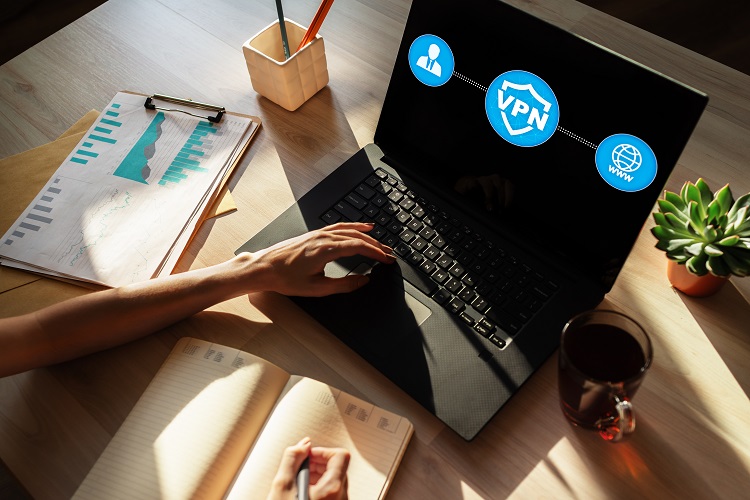Q&A: VPNs

With many employees transitioning to working from home, there have been a lot of conversations about ensuring cybersecurity. Establishing a virtual private network (VPN) can be an important part of a company’s security strategy.
What is a VPN? As the name implies, a VPN establishes a private network while using a public Internet connection. VPNs mask your IP address, ensuring your online actions cannot be traced. VPN connections are encrypted, which provides more security and enhanced privacy
Why are they needed? When searching the web or utilizing an unsecured network, others can intersect private information as well as see browsing habits and use that information against you. In particular, public Wi-Fi networks are not secured so anyone can join and may be able to obtain the information you’re searching. The encryption that VPNs provide helps keep web browsing anonymous and protects online activities.
How does a VPN protect privacy? VPNs create a connection from your local network to an exit node located elsewhere, which makes it look like you’re somewhere else, even thousands of miles away. Data encrypted by VPNs becomes unreadable.
What services does a VPN provide?
- Hiding browsing and web history. Websites may be able to see what topics you’ve been searching and use that information, and VPNs can obscure your browsing history. However, your search data may be open to the VPN provider, so do your research before choosing a provider.
- Masking your IP address and location. Your IP address can tell others what you’ve been searching on the Internet and where you were when you searched. A VPN uses a different IP address located elsewhere, so this information cannot be obtained.
- Changing your streaming location. When traveling, you can select an IP address in your country, so you’re able to stream any items available through your streaming service.
- Protecting devices. VPNs help protect devices by hiding information you send or receive on them, making them more secure.
What should I consider when selecting a VPN? You should note the following as caution and conduct in-depth research to ensure you get the best service available:
- Some providers have been known to log your data and sell it. This holds especially true for the "free" ones.
- Not all providers offer the same level of encryption. Also, if the VPN does not use the latest encryption algorithms, it is possible to be open to hackers through man-in-the-middle attacks.
- Some VPNs are known to leak some data, such as your IP address and other website headers, which does take away the protections that have been outlined.
- Some public Wi-Fi networks are configured to prohibit the use of VPNs.
- Some streaming services also prohibit the use of VPNs and will not function if they detect you are using one.
What is the cost of a VPN? The cost for VPNs varies. Many companies offer their VPNs for a monthly cost. Sometimes the monthly cost varies based on how many simultaneous connections you need. Be especially cautious of “free” VPNs.
An insurance company that cares about you and insuring the things you wish to be insured.
Get a Quote> Find an Agent>

